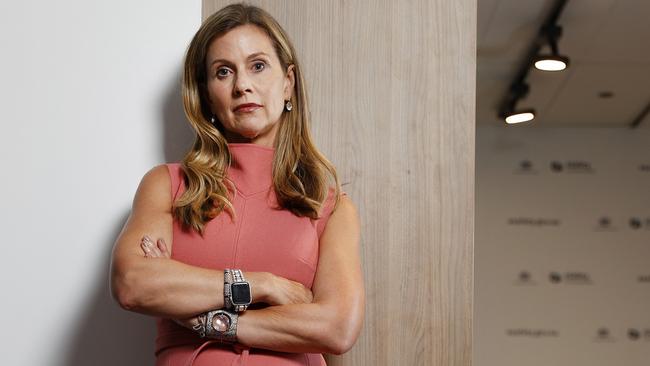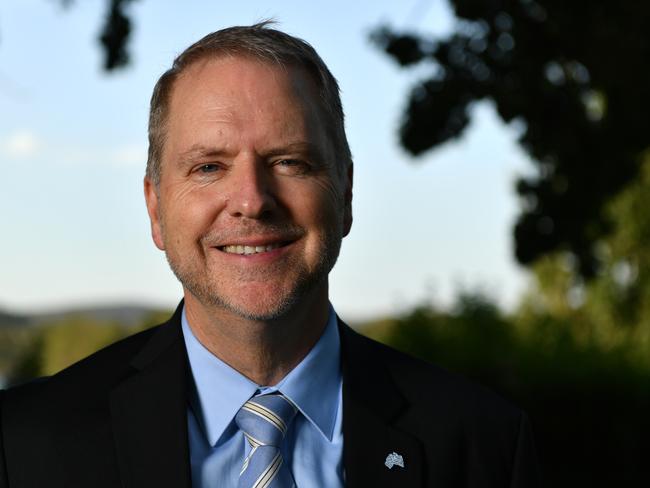Sextortion a case of ‘life and death’ for kids
Vulnerable children and teenagers are being actively encouraged to take their own lives by sexual extortionists, with tragic cases in Australia, the US and other countries.

Vulnerable children and teenagers are being actively encouraged to take their own lives by sexual extortionists, with tragic cases in Australia, the US and other countries of deaths by suicide as a result.
Online safety experts and child-abuse investigators have slammed social media giants for not doing the basics to protect users from the ruthless scammers, who are trapping children into sending intimate images and then threatening to expose them to family and friends.
Hundreds of reports are being made to federal police every month of children sharing intimate images to overseas-based scammers who are using hacked and fraudulent social media accounts to pose as attractive youths on social media sites.
Julie Inman Grant, head of the nation’s online safety regulator eSafety, urged parents to “swallow any fear or judgment or bewilderment” if a child admits to being targeted.
Ms Inman Grant’s urgent message is for anyone caught up in “sextortion” to immediately cut all contact with and block blackmailers, seek help, and to make no payments. “These criminals are skilled and know how to manipulate,” she said.
US authorities have pursued extortionists in Nigeria, successfully extraditing two brothers who allegedly encouraged teenagers and young men to take their own lives when they couldn’t immediately pay the blackmail demands.
Faced with difficulties arresting sextortionists overseas, the Australian Federal Police and financial watchdog Austrac are trying to cut off their money supply, closing thousands of bank accounts linked to sexual blackmail.
Retired detective Jon Rouse, former operations manager with the AFP-led Australian Centre to Counter Child Exploitation, took the issue up with tech giant Meta after observing the prolific targeting of people on its Instagram platform. The company had technology for more than a decade to detect and stop accounts being used for rampant extortion of people of all ages, he said.
Meta recently teamed with the AFP to target teenagers with online safety messages, but eSafety says Instagram remains one of the worst sites for sextortion complaints.

“In many cases they hit up married men and they have absolutely taken them to the cleaners to make sure that they ‘don’t tell my wife, don’t tell my family, destroy my life’,” Mr Rouse said.
“Tragically our kids are being caught up in this. They don’t care who you are.
“The overarching problem is that we’re dealing with countries where collectively, we’ve never been able to stop the scams. Nearly everyone has been subjected to a Nigerian scam.”
Ms Inman Grant, who is being inundated with reports of young men being targeted, has powers to remove intimate content shared without consent.
“The number of sexual extortion reports to this scheme has exploded in recent years – but are likely just the tip of the iceberg,” she said. “It’s a wicked problem that regulators, law enforcement and governments globally are struggling to throttle.”
Under the Online Safety Act, eSafety could do little against social media platforms who failed to take preventive action.
“While we can compel information from platforms about certain user safety issues under the basic online safety expectations, those expectations are not enforceable as such,” Ms Inman Grant said.
A Meta spokeswoman said the company had created preventative technology that identified potentially suspicious adults who tried to interact with young people online.
She said it had helped develop the global Take It Down platform that allowed young people to prevent their intimate images being shared.
“As this type of activity often occurs across a range of apps and services this is an issue that requires cross-industry collaboration,” the spokeswoman said.







To join the conversation, please log in. Don't have an account? Register
Join the conversation, you are commenting as Logout